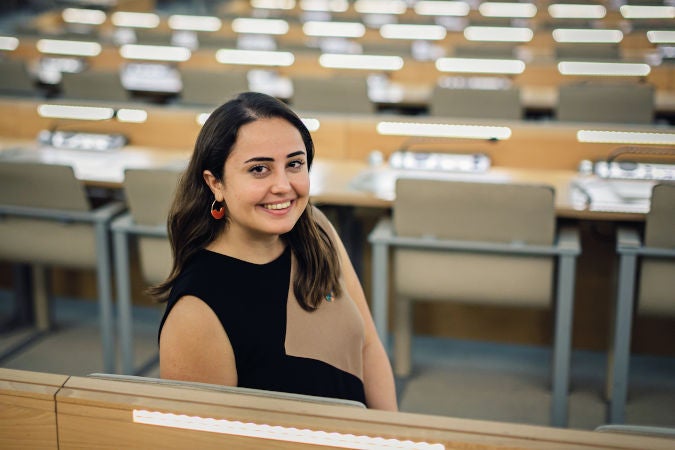In the words of Ilayda Eskitaşçioğlu: “2020 is the year of gender equality, and a year for reflection”
Date:

Ilayda Eskitaşçioğlu. Photo: UN Women/ Antoine Tardy
Ilayda Eskitaşçioğlu, 26, is a human rights lawyer and a member of the Beijing+25 Global Youth Task Force from Turkey. She is a Ph.D. student in International Human Rights Law and founder of the NGO “We need to talk”, aimed at fighting stigma around menstruation for rural women in Turkey and to provide access to sanitary materials. She attended the Beijing+25 Regional Review Meeting, which took place from 29-30 October 2019. There, she presented the key messages from the Civil Society Forum.
![]()
I am a proud feminist. I started to define myself as a proud feminist five years ago. It didn’t come from my childhood. I used to believe in the stigma and had a very different image of feminists. I saw them as a bunch of angry women who are not happy with anything in the world. Then I started to read more women’s stories. Little-by-little, I built a love and a passion for feminism and women’s rights.
I come from Turkey, and although I love my country and its people, it has a very problematic landscape when it comes to women’s rights. I grew up listening and reading news about femicide, honor killings, especially in Eastern Turkey. I was raised in a culture where people and society as a whole didn’t ask for my opinion. There were rules I had to obey and, if I didn’t, I would be labeled a ‘rebellious kid’.
I was a 2-year-old baby in 1995 when the Beijing Declaration and Platform for Action, the most progressive agenda for women’s rights, was adopted. As I grew, women’s rights movements grew with me. And, even if lots of things have been achieved, 90 percent of problems discussed in 1995 are still relevant today. In addition, we have new emerging issues, like cyberbullying and the climate crisis. So, we have a lot of work to do.
I started to be a feminist because there is a need to fight for gender equality worldwide.
Being a young woman in Turkey is exciting, but at the same time, I am very worried about the ongoing discourse. In our region, the biggest problem is the rise of the anti-equality discourse. We are experiencing a pushback within the region from Central Asia to Western Europe to the Balkans and Turkey.
Another problem is the rise of violence against women on online platforms. This is happening like never before and we don’t have the legislative tools and frameworks to address this. Every single state from this region struggles with it.
Other important issues that we need to fight are economic empowerment and the very low representation of women in politics.
Although the region is big, the countries in this region have similar problems.
This is why we need to sit down and start self-criticizing before getting ready for 2020. This is the year of gender equality, as we have the UN Commission on the Status of Women (CSW 64), the 25th anniversary of the Fourth World Conference on Women from Beijing, and ten years since the creation of UN Women. It is a year for reflection in terms of gender equality.
Now we have the momentum. And my message to the youth is to join and be effective in the fight for gender equality. People have started to listen to us, so do not hold back, raise your voice, keep doing your activism. Our ideas are valuable and worthy because we demand change. We just have to keep pushing”.